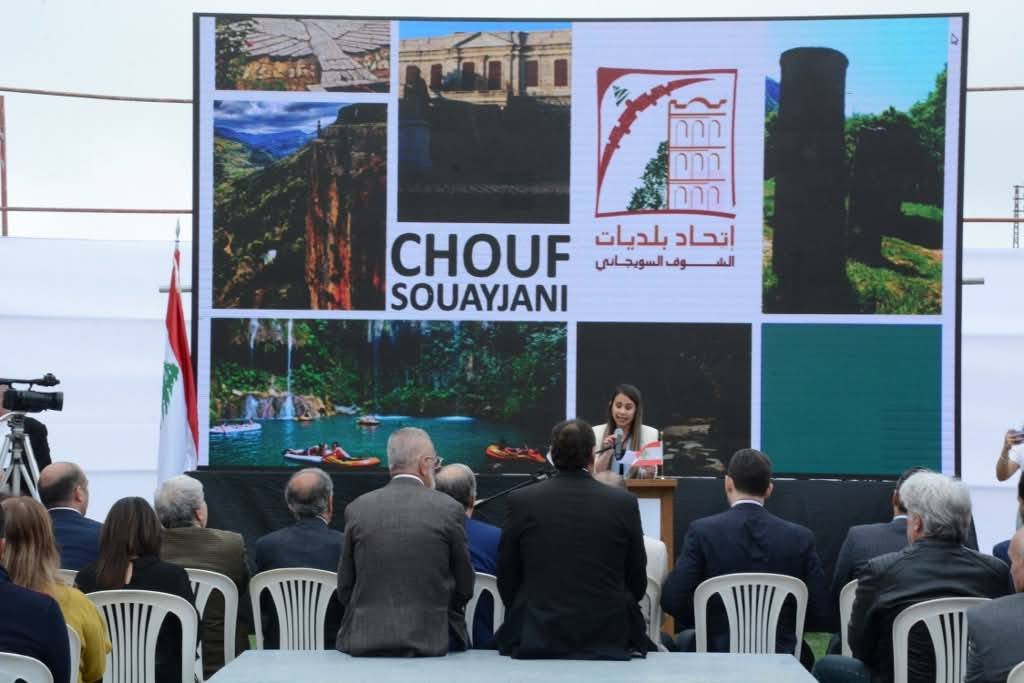Systems and Network students propose an innovative solution to advance Lebanon’s constitutional decentralization goals
TS Students Support Constitutional Reform Through Technology
In a significant development for Lebanon’s ongoing efforts to implement Expanded Administrative Decentralization, as outlined in the Taif Agreement and the Lebanese Constitution—Systems and Network students from AEC College’s Technique Supérieur (TS) program have unveiled an ambitious digital transformation initiative for the Shouf District.
The student-led project directly contributes to the modernization and digital transformation of local governance within the Shouf District, aligning technical innovation with Lebanon’s constitutional framework for administrative reform. Their timing couldn’t be more critical as regional municipalities struggle with fragmented systems and outdated processes.
The student team has developed a comprehensive framework called the Shouf District Governmental Local Administration (SDGLA), designed as a practical implementation model for the constitutionally mandated decentralization process.
Systems and Network Expertise Drives Constitutional Implementation
“What makes this initiative extraordinary is how it bridges technical education with constitutional reform,” says a representative from AEC College. “These TS students are applying their Systems and Network expertise to create solutions that could transform how Lebanon implements its decentralization mandate.”
The students’ proposal features a digital portal—tentatively named “eMowatin”—that would allow residents to:
- Submit documents online rather than in person
- Track the status of their applications in real time
- Communicate directly with municipal officials
- Access a centralized database of services and information
Addressing Critical Municipal Bottlenecks
Through extensive research and stakeholder engagement, the AEC Technique Supérieur students identified several urgent problems plaguing the current system:
- Disconnected municipal offices operating in isolation
- Overwhelming paperwork creates delays for citizens and staff
- Inconsistent data management leading to errors and confusion
- Limited digital adoption despite previous attempts with the “Mwakaba” platform
“We spent time interviewing mayors and federation representatives to understand the real challenges they face in implementing the decentralization principles of the Taif Agreement,” explained one of the student project leaders from the Systems and Network major. “This isn’t just a theoretical exercise—it’s a practical solution built around constitutional mandates and actual needs.”
Network Expertise Meets Constitutional Reform
The technical aspects of the students’ proposal showcase how specialized knowledge can accelerate Lebanon’s decentralization agenda:
- Design of a scalable and secure LAN infrastructure supporting district-level governance
- Implementation of robust data security protocols to protect citizen information
- Creation of automated municipal workflows embodying administrative efficiency
- Development of a unified communication platform facilitating the coordinated governance envisioned in the constitution
The Federation of Chouf Souayjani Municipalities (FCSM), led by President Mr. Yehya Abou Karroum, has shown significant interest in the project. The Federation recognizes how the students’ technical framework could help translate constitutional principles into practical governance solutions. Their specialized Systems and Network approach offers a promising pathway to advance regional decentralization goals.
From Classroom to Constitutional Impact
The project demonstrates how specialized higher education can contribute to implementing Lebanon’s constitutional framework while providing students with real-world experience. The AEC Technique Supérieur students have aligned their academic requirements in Systems and Network engineering with Lebanon’s broader goals for decentralized governance.
“This initiative represents a practical pathway toward the decentralization vision outlined in our national agreements,” commented an educational observer. “These students aren’t waiting until after graduation to make an impact—they’re applying their network engineering skills to advance constitutional principles today.”
Next Steps: From Proposal to Implementation
With their comprehensive proposal now public, the Systems and Network students will present their detailed implementation plan to key stakeholders across the Shouf District. The initiative has already generated significant interest from municipalities seeking innovative solutions to support Lebanon’s decentralization agenda.
If adopted, the student-designed system promises to:
- Cut processing times for municipal transactions by up to 70%
- Reduce operational costs through streamlined digital workflows
- Improve citizen satisfaction through accessible, transparent services
- Create a model for implementing Lebanon’s constitutional decentralization across other districts
As Lebanon continues its journey toward the administrative decentralization outlined in the Taif Agreement and Constitution, this groundbreaking initiative from AEC Technique Supérieur students in Systems and Networks demonstrates how technical education can accelerate governance reforms through innovation and practical application of specialized knowledge.
This project was developed by Systems and Network students from AEC College’s Technique Supérieur program (www.aec-college.me) in alignment with standards set by the General Directorate of Vocational and Technical Education under the Lebanese Ministry of Education and Higher Education.


